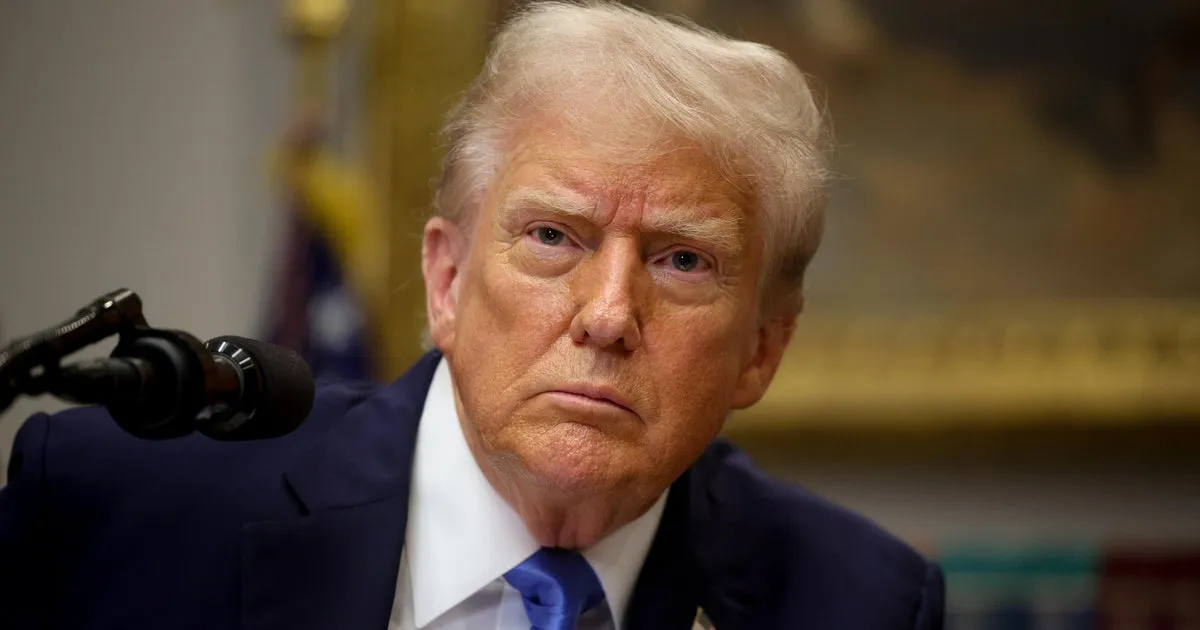
The White House's Office of Management and Budget (OMB) has taken a significant step by issuing a memo to federal agencies on Wednesday night, urging them to prepare layoff plans in anticipation of a potential government shutdown. This development raises concerns as Congress faces a crucial deadline on Tuesday to pass a new government funding bill. The news, initially reported by Politico, underscores the urgency of the situation.
According to the memo, which was obtained by CBS News, federal agencies are instructed to consider issuing reduction-in-force notices—a formal term for layoffs—targeting employees involved in programs or projects that rely on discretionary funding set to expire on October 1. The memo goes a step further, indicating that employees may also receive RIF notices if they work in programs misaligned with the President's priorities.
The memo clarifies that these RIF notices would be in addition to any furlough notices that would require federal workers to stay home without pay in the event of a shutdown. It emphasizes that programs lacking mandatory appropriations will be hit hardest during a shutdown, urging agencies to continue planning for this scenario should Democrats choose to halt government operations.
An OMB official reassured the public that several critical programs would remain operational despite a government shutdown. These programs include Social Security, Medicare, veterans' benefits, military operations, law enforcement, Immigration and Customs Enforcement, Customs and Border Protection, and air traffic control. These are safeguarded under statutory federal law and would not face any reductions-in-force.
The memo concludes with a note of optimism from the OMB, expressing hope that Congressional Democrats will avoid triggering a shutdown, making the outlined steps unnecessary. The President has expressed his support for the enactment of a clean continuing resolution (CR) to prevent any lapse in discretionary spending after September 30, 2025.
Historically, during past government shutdowns, the executive branch has typically opted to furlough non-essential staff temporarily while allowing those in critical roles to continue working without pay. Once the shutdown concludes, federal workers usually receive compensation for any missed paychecks. However, the consideration of permanent layoffs remains a rare and drastic measure.
Bobby Kogan, a former OMB official from the Biden administration, criticized the potential mass firings, labeling them as an act of significant self-harm for the nation that would unjustly eliminate valuable talent and expertise. He described the situation as "extortive," suggesting that it pressures Congress to concede in funding negotiations through the threat of harming the country.
Senate Minority Leader Chuck Schumer, a Democrat from New York, condemned the memo as an intimidation tactic, claiming that the administration has long used similar strategies to instill fear among federal workers. He remarked, "Donald Trump has been firing federal workers since day one—not to govern, but to scare." Schumer predicted that any employees laid off would likely be rehired once the situation stabilizes.
In a similar vein, House Minority Leader Hakeem Jeffries, also a New York Democrat, responded on social media platform X, asserting, "We will not be intimidated by your threat to engage in mass firings. Get lost."
The current fiscal year is set to conclude on Tuesday, September 30, which means the government could enter a shutdown the following day if Congress fails to pass a new funding package. A short-term funding bill proposed by Republicans has already faltered in the Senate, unable to secure the necessary 60 votes for advancement. With a 53-seat majority, Republicans must garner the support of at least seven Democrats to resolve the funding impasse.
Meanwhile, Democrats are insisting on several concessions, including a rollback of this year's Medicaid cuts and an extension of health insurance tax credits, in exchange for their votes. In a recent development, President Trump canceled a meeting with Democratic congressional leaders intended to negotiate a short-term funding solution, labeling their demands as "unserious" and "ridiculous." He expressed on Truth Social, "I have decided that no meeting with their Congressional Leaders could possibly be productive."